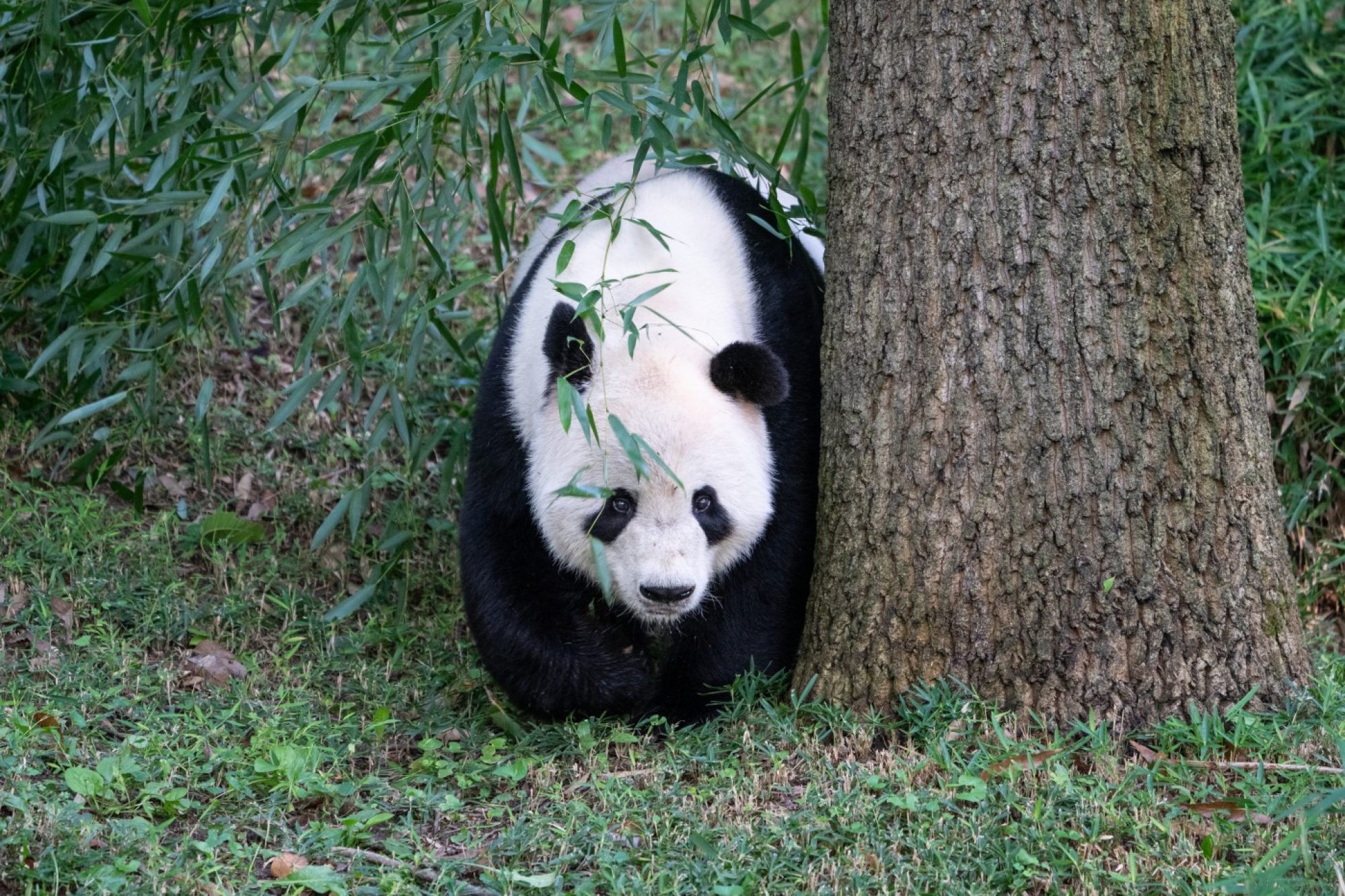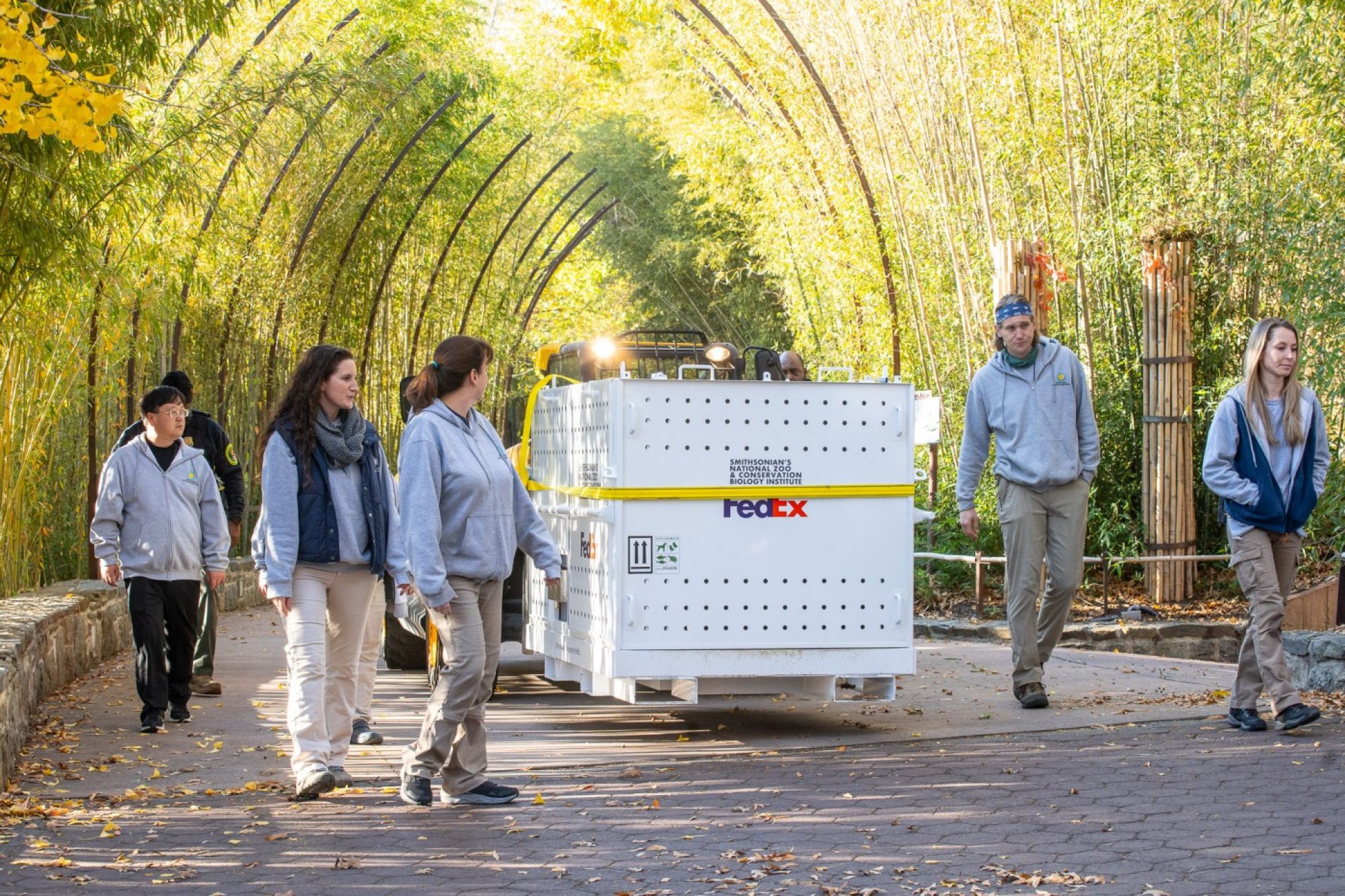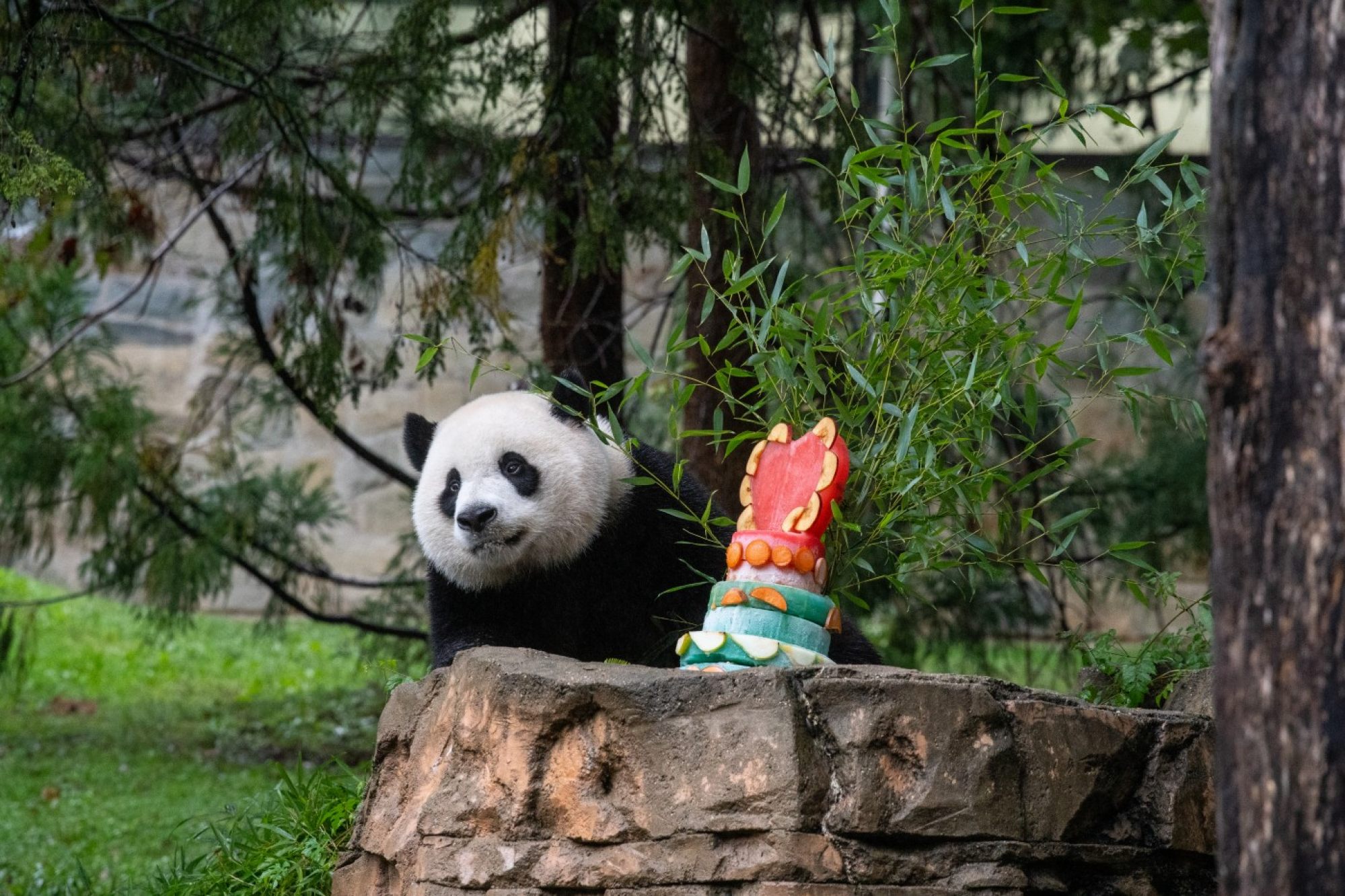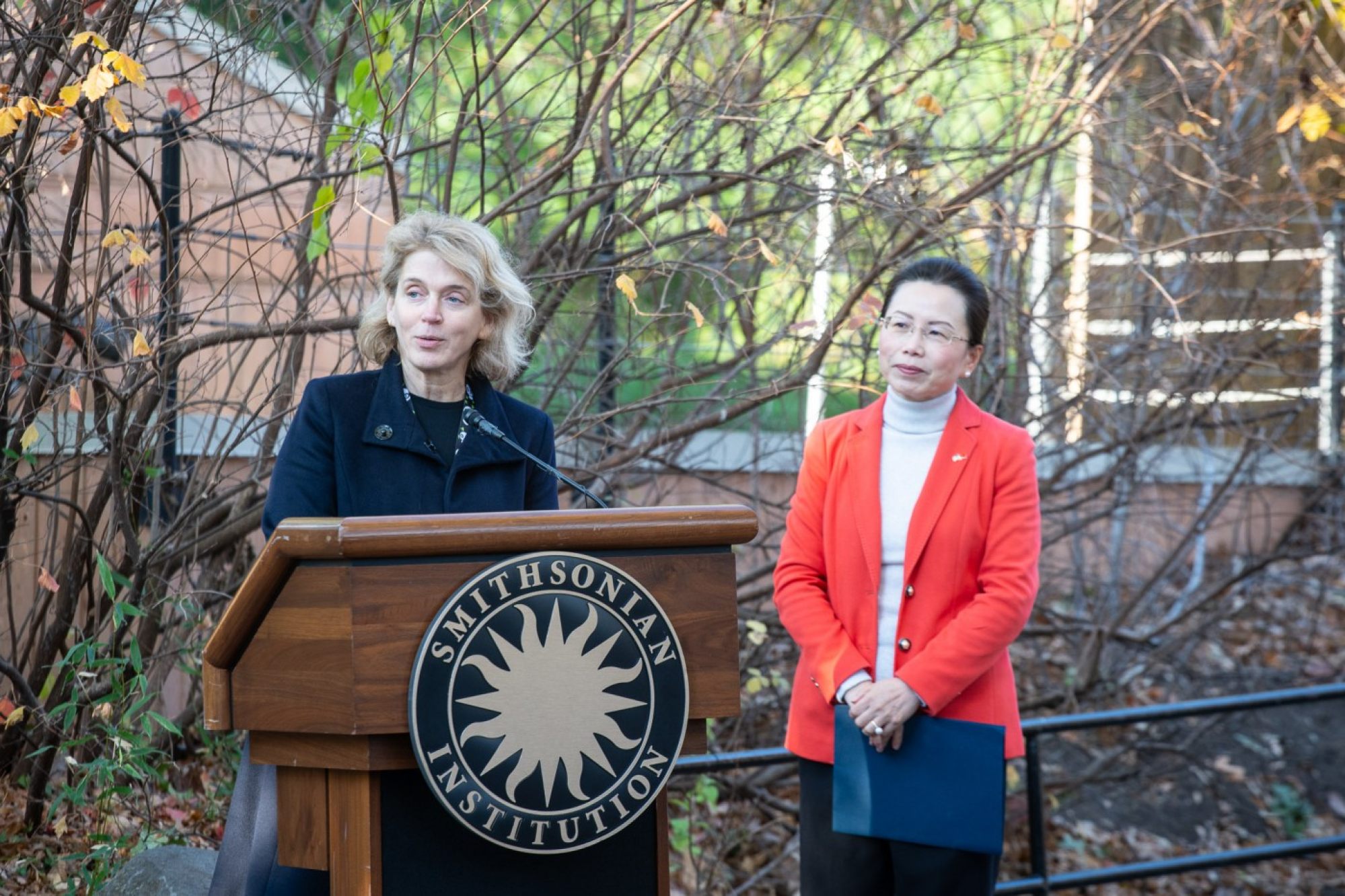The zoo would look forward to conversations “with our Chinese partners” about “how we can continue to work together to save the species”, she added.
It was in 2000 that the zoo welcomed Mei Xiang and Tian Tian. Initially loaned for a 10-year stay, the agreement has been renewed three times since 2010. Xiao Qi Ji, whose name means “little miracle”, was born in 2020 with the help of artificial insemination.
China flags readiness to work with US ‘at all levels’ ahead of Apec summit
China flags readiness to work with US ‘at all levels’ ahead of Apec summit
However, attempts to extend the arrangement, which was due to expire on December 7, failed.
Against the backdrop of an increasingly hostile relationship, several US-based pandas have left for China. The San Diego Zoo returned its charges in 2019. Another one departed the Memphis Zoo earlier this year.
The exodus means Zoo Atlanta is the only place left in the US to see giant pandas. And the lease for those four in Georgia is set to expire next year.

At present, some 65 Chinese pandas have taken up residence in 19 countries around the world as gifts under “cooperative research programmes” in what is popularly known as panda diplomacy.
As a rule, the pandas return to China when they reach old age. Any cubs born abroad are required to be sent back by age three or four.
Irrespective of the lending terms, the exchanges have long been regarded as a sign of cordial ties with the world’s second-largest economy.

The lighthearted moment between the leaders has now been perceived as a symbol of stabilising ties. The two countries are negotiating the extension of a loan agreement for two pandas at the Adelaide Zoo that expires next year.
In view of Xi and Biden’s looming meeting, the question arises: could a successful discussion between the presidents pave a new path for pandas in the US?
Maintaining a panda exchange is the “bare minimum” for US-China cooperation “both substantively and symbolically”, according to Andrew Mertha of Johns Hopkins University’s China Global Research Centre.
“If this wonderful tradition is renewed, it only means that we haven’t quite reached the abyss,” Mertha said. But if the exchange were halted, it would signal an “inability or an unwillingness to appreciate the hallmarks of the past in buttressing this essential relationship during these difficult times”.
US viewed more favourably than China in 22 of 24 countries: survey
US viewed more favourably than China in 22 of 24 countries: survey
Elena Songster, author of the book Panda Nation: The Construction and Conservation of China’s Modern Icon, said she would be “a bit surprised” if the topic came up given the conflicts in Ukraine and Gaza along with other bilateral tensions, though “it would not be shocking were Biden to raise” pandas considering their deployment in state politics.
Dennis Wilder of Georgetown University’s Initiative of US-China Dialogue on Global Issues agreed, saying it was “hard to imagine” the leaders spending their limited time discussing pandas.
If their meeting were to go well, however, “the Chinese may change their current approach toward a new lease of pandas to the National Zoo”.
But Joshua Kurlantzick of the Council on Foreign Relations, a New York think tank, believed Beijing was committed to pulling pandas back from “a whole wide range of places”.
The Xi-Biden meeting would not yield any major deliverables and the relationship moving in a positive direction would depend on many variables, he predicted.

The official Chinese line on pandas is one of maintaining cooperation. Liu Pengyu, spokesman for the Chinese embassy in Washington, described the collaboration between China and the National Zoo as “fruitful”.
Joint efforts in panda conservation and research had “played an important role in enhancing the mutual understanding and friendship between the Chinese and American peoples”, he said.
China was ready to work more closely with its partners in the arrangement, including the US, Liu added.
“Together the two sides can make greater contributions to endangered wildlife protection and enhancing the friendship between the two peoples.”
A senior Chinese diplomat also recently hailed the role of giant pandas in the country’s global diplomacy.
“In the next 50 years and even longer, giant pandas can sometimes help more than we diplomats,” said Xu Xueyuan, deputy chief of mission at the Chinese embassy in Washington.

Yet not everyone is convinced of the cuddly bears’ efficacy.
Miles Yu of the Hudson Institute, a Washington think tank, said panda diplomacy had “long lost its potency” and that “fewer and fewer Americans care about any charm offensives by China”.
He argued that panda exchanges with the international community “should not be a state-controlled programme but a private, people-to-people programme without Beijing’s intervention”, calling the use of animals endemic to China “cynical and demeaning, not only to these animals but also to the goodwill of the American public”.
Other observers reckon that lavishing Chinese pandas with adoration could prove political suicide for American presidential hopefuls, including Biden.
‘The one safe place for dialogue’: Sino-US cultural exchanges pick up
‘The one safe place for dialogue’: Sino-US cultural exchanges pick up
“They don’t want to appear to be like a panda hugger”, said Zongyuan Zoe Liu of the Council on Foreign Relations, comparing the stance to “embracing China”.
“I don’t think any American presidential candidate would want to appear to be weak in the sense that they look that they are not taking a strong position … vis-à-vis China,” Liu added.
Despite unfavourable political sentiment surrounding giant pandas in the US now, Brandie Smith, the National Zoo’s director, voiced optimism.
“The future is bright for giant pandas,” she said last month. “We remain committed to our programme, and we look forward to celebrating … when pandas can return to DC.”
In the meantime, the zoo plans to spend US$1.7 million to renovate its panda enclosure, hoping the lumbering guests will be back to steal hearts all over again.

